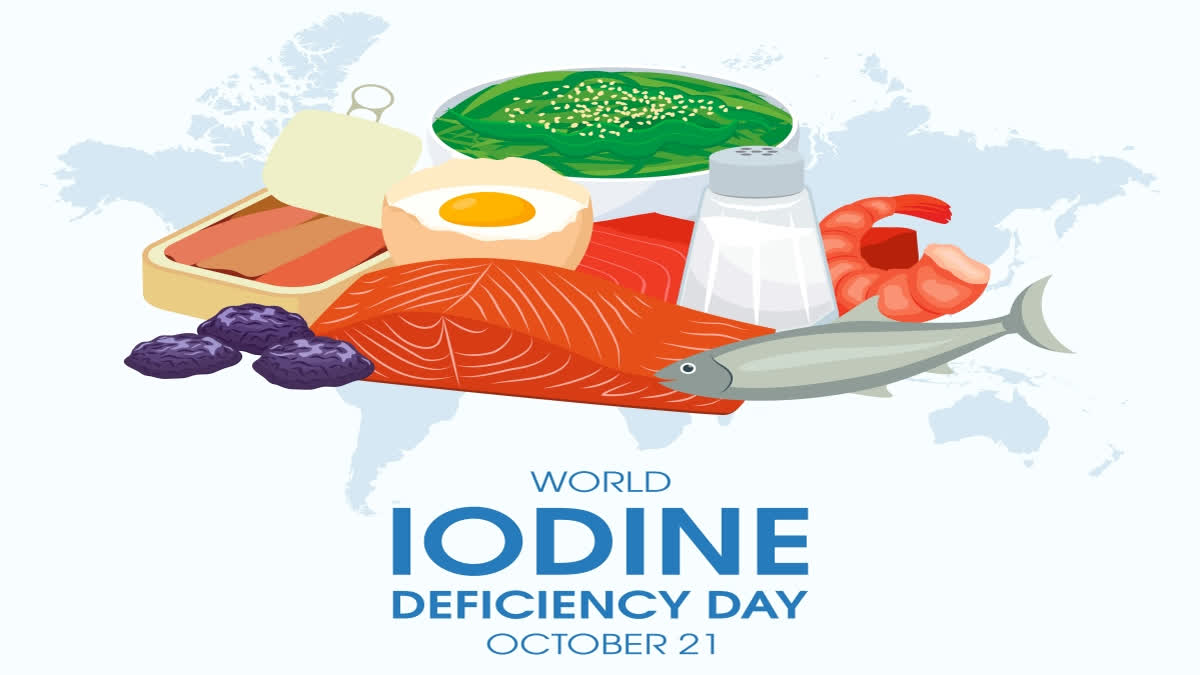Hyderabad:In an effort to combat iodine deficiency disorders worldwide, the International Council for the Control of Iodine Deficiency Disorders (ICCIDD) initiated the World Iodine Deficiency Disorders Prevention Day on Oct. 21, 1992. The day serves as a global platform to shed light on the critical role of iodine in our daily diet and its profound impact on the health and development of living organisms.
History-The history of the day of iodine dates back to the early 19th century when Bernard Courtois, a French chemist, observed an unusual purple cloud emanating from seaweed ash heated with sulfuric acid in 1811. This observation laid the foundation for understanding iodine's connection to health.
- In 1896, Eugen Baumann confirmed iodine's presence in the thyroid gland, revealing its role in thyroid function.
- By 1980, the World Health Organization (WHO) took steps to reduce global iodine deficiency.
- In 1852, Gaspard Adolphe Chatin linked goiter to iodine deficiency, further emphasizing the need for iodine in our diets.
- In 1924, the commercialization of iodized salt began, revolutionizing the prevention of iodine deficiency.
- Finally, in 1993, universal salt iodisation emerged as a pivotal technique for controlling iodine deficiency disorders.
Significance of Iodine-Iodine plays an important role in maintaining the health of the thyroid gland, which, in turn, affects various bodily functions such as heart rate, metabolism, body temperature, and muscle movements.
Iodine also regulates the rate at which dying cells are replaced. When iodine is deficient, the thyroid gland enlarges to capture more iodine from the bloodstream, leading to goiter. Beyond goiter, prolonged iodine deficiency can result in hypothyroidism, particularly affecting pregnant and breastfeeding women and infants.
Iodine is essential as it-
- Ensures proper thyroid function, influencing metabolism and overall health.
- Boosts the immune system and maintains a healthy hormonal balance.
Objective-
- Raising awareness about the health consequences of iodine deficiency.
- Promoting universal salt iodisation for improved nutrition.
- Preventing cognitive and developmental issues resulting from iodine deficiency.
- Collaborating globally to ensure access to iodine-rich foods and supplements.
- Educating communities about iodine's vital role in growth and well-being.
- Advocating for policies that support iodine-rich diets and supplementation.
- Monitoring progress and addressing challenges in the fight against iodine deficiency.
- Working towards a healthier future for all through sustained efforts.
Myths about Iodine-
